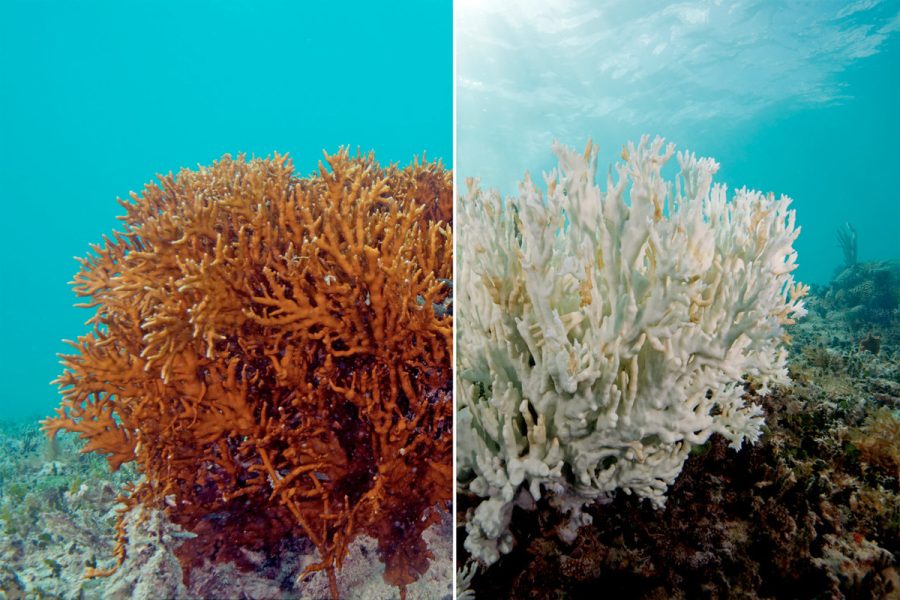How Climate Change is Affecting the Great Barrier Reef
Before and After Photos of the Great Barrier Reef
May 17, 2022
This year, climate change has caused the coral bleaching of the Great Barrier Reef to dramatically increase, with more than 91% of the said system experiencing destruction, rendering the future of ocean life entirely precarious.
Coral bleaching occurs when corals are stressed by changes in conditions, including, but not limited to, alterations in temperature, nutrients, and light. When stress is applied to these corals, they expel the symbiotic algae living in their tissues, which, in turn, induces discoloration. This symbiotic relationship between coral and algae cannot be established when corals are pressured, for when stress is applied to the system, algae leave the coral. When this alga is displaced, the coral is left bleached and vulnerable.
As a result of climate change, there has been a substantial increase in both ocean temperature and pollution. This is pertinent in that the algae departing from the corals do more than just bring about discoloration, for algae are the corals’ main source of nutrition. Losing it, therefore, renders the corals more susceptible to disease. Although these reefs are capable of surviving a bleaching event, a considerable amount of algae lost will prolong the stress of these corals, eventually leading to mortality.
As of Tuesday, May tenth, an analytical report, Reef snapshot: Summer 2021-22, had been published that quantified the coral reefs that were impacted by bleaching events in some way. It had found that across the 1,400-mile system, every coral reef surveyed had been affected.
“A couple of years ago, I watched a documentary which pertained to the destruction of coral reefs. I never knew how serious the issue was until I compared the videos and images of what were once colorful, vibrant, and beautiful reefs to what are now dead and brown corals. Coral reefs are home to nearly one-fourth of all species in the ocean and their death will affect the whole ocean ecosystem. This issue gets worse every year and although there are numerous organizations trying to help, we will not be able to save these reefs unless everybody is in on it,” said sophomore Sasha Abramsky.
As of right now, coral bleaching is deemed reversible. Scientists have, however, made it rather patent that the Great Barrier Reef is not an invincible system. If governments do not start intervening to protect coral reefs, 75% of them will face critical threat levels by 2050, and by 2070, corals are expected to perish entirely.

















Emily • Dec 23, 2022 at 9:20 AM
This article was very upsetting to read about and very informative to help inform Wayne Hills Students what is going on in our environment and how to help.